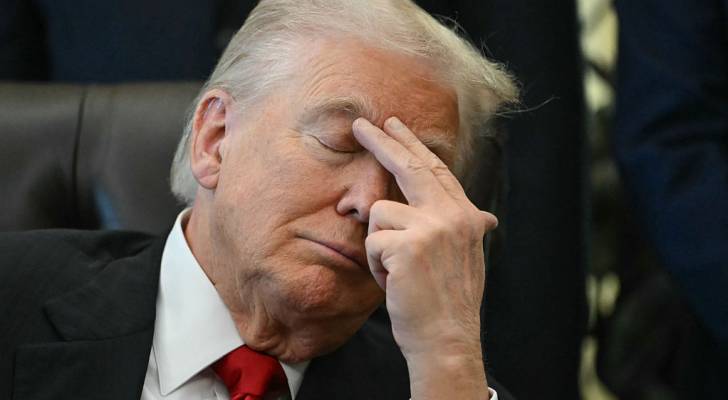President Donald Trump is again promising to put cash in Americans’ pockets. This time through what he calls a “tariff dividend” of at least $2,000 per person.
In a Truth Social post on Sunday, Trump claimed that because of his administration’s sweeping tariffs on foreign goods, “a dividend of at least $2,000 a person (not including high income people!) will be paid to everyone.” He also accused critics of being “fools” for opposing tariffs.
The comment sparked confusion from economists, as well as a healthy dose of skepticism, since Trump has not proposed a formal plan for how the program would work.
Tariffs are import taxes, paid by U.S. companies that buy foreign goods. The Trump administration has expanded them dramatically this year, imposing duties on everything from Chinese electronics to European steel, in what it describes as an effort to “rebalance trade” and bring manufacturing back to the United States.
The Treasury Department collected roughly $195 billion in tariff revenue through the first three quarters of 2025, according to federal data (1). In his post, Trump said that revenue could fund both the $2,000 “dividend” and payments toward what he called the nation’s “enormous” debt.
But under U.S. law, such distributions would require congressional approval, and none of the president’s advisers have yet detailed how the dividend would be structured or who would qualify.
Treasury Secretary Scott Bessent, asked about the proposal Sunday on ABC’s This Week by host George Stephanopoulos, avoided specifics.
“I haven’t spoken to the president about this yet,” Bessent said. “The $2,000 dividend could come in lots of forms and lots of ways.”
Bessent suggested the payout could take the form of tax reductions, such as Trump’s proposals to eliminate taxes on tips and overtime pay, rather than a direct cash rebate.
A similar idea has circulated among populist conservatives for months. Over the summer, Sen. Josh Hawley (R-Mo.) introduced a bill that would give $600 tariff rebates to most U.S. adults and children, arguing that the legislation “would allow hard-working Americans to benefit from the wealth that Trump’s tariffs are returning to this country (2).”
Story Continues
